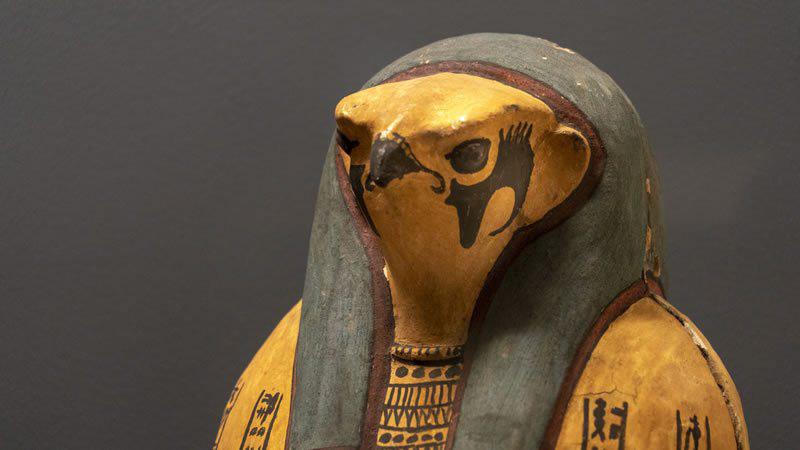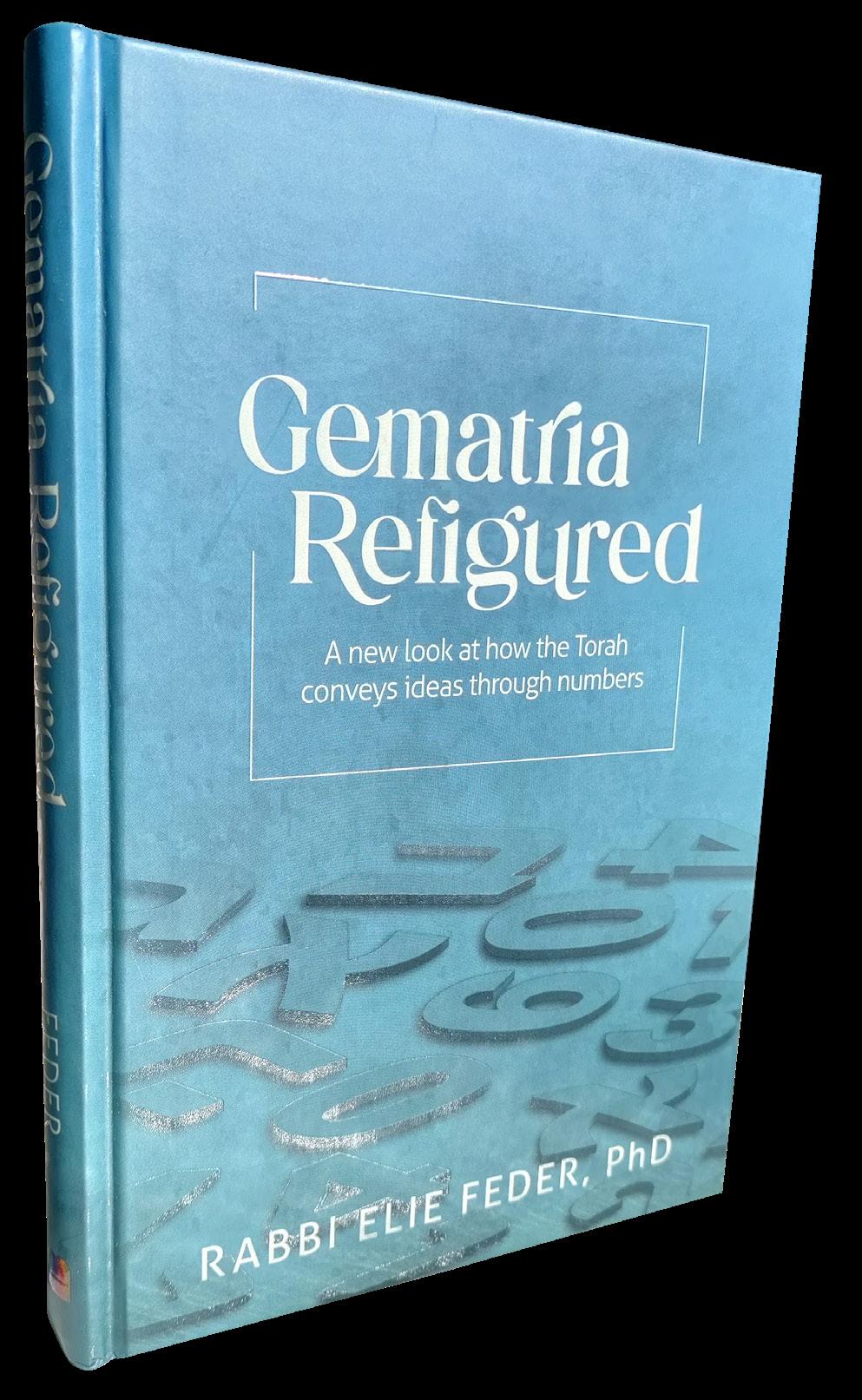







VOL. XXI NO. 10 — MAR. 24, 2023 Man at His Best PERFECTION God Shrank To Make Room for the Universe RABBI MOSHE BEN-CHAIM RABBI MOSHE BEN-CHAIM HERESY You Le Egypt RABBI ISRAEL CHAIT PESACH Stars Too Far
Help ASTROLOGY New images of Jupiter
to
FREE
Just click any icon in this issue





2 | WWW.MESORA.ORG MAR. 24, 2023
the
THE JOURNAL ON TORAH THOUGHT
3 Perfection
5


Heresy
6 Stars
8 Internal vs. External Law
ASTROLOGY & WOODEN GODS |

Isaiah equates astrology to idolatry. Both are imagined to be intelligent forces that recognize man and help him, but o er no evidence. God through His prophets teaches man to reject imagination in all forms:

us said the Lord, “To the way of the nations do not learn, and from the signs (events) in the sky do not fear, for the nations fear them. For the laws of the nations are futile, for a tree in the forest they cut, cra smen use their handiwork with an axe. ey adorn it with silver and gold, fastening it with nails and hammer so that it does not to er. Like a palm tree they [idols] are beaten. ey cannot speak. ey have to be carried, for they cannot walk. Be not afraid of them, for they can do no harm; nor is it in them to do any good” (Jer. 10:2-5).
PERFECTION
One who serves [God] out of love occupies himself in the Torah and the mitzvot and walks in the paths of wisdom for no ulterior motive: not because of fear that evil will occur, nor in order to acquire benefit. Rather, he does what is true because it is true, and ultimately, good will come because of it. This is a very high level which is not merited by every wise man. It is the level of our Patriarch, Abraham, whom God
described as, "he who loved Me," for his service was only motivated by love. God commanded us [to seek] this rung [of service] as conveyed by Moses as [Deuteronomy 6:5] states: "Love God, your Lord.'' When a man will love God in the proper manner, he will immediately perform all of the mitzvot motivated by love (Maimonides’ Laws of Repentance 10:2)
Subscriptions are free. To subscribe, send any email to join@mesora.org We invite feedback at comments@mesora.org –––––––––––––––––––––––––Articles may be reprinted without consent of the Jewishtimes or the authors, provided the content is not altered and credits are given. WWW.MESORA.ORG MAR. 24, 2023 | 3
RABBI
greatest state: Love of
&
MOSHE BEN-CHAIM Man’s
wisdom
God
RABBI
Refuting
in connection
God MESORA
MOSHE BEN-CHAIM Tzimtzum:
physicality
with
RABBI MOSHE BEN-CHAIM
RABBI ISRAEL CHAIT Astrology is refuted
RABBI ISRAEL CHAIT Explaining an apparent redundancy, Rabbi Chait reveals Maimonides’ beautiful concept (CONT. ON NEXT PAGE)
|
Man at His Best | Please send letters and questions to: Comments@Mesora.org |
“He does what is true because it is true”
Man eats to remove the pain of hunger. Man builds a house to shelter from the elements. Man exercises to extend his longevity. But here, when one performs what is true for its value as truth, Maimonides says there is no motive. Here, man diverges from all his other actions. On this level, man desires nothing additional. How can a man function without motive, and why is this of such a great value?
When man performs X as it results in his true desire for Y, X is not valued inherently, but only as a means. Man does not view Y as an inherent value. But when one engages in Z without other motivations, man expresses inherent value for Z itself. Therefore, when man pursues the truth for itself, he demonstrates the lofty capacity of “valuing” on the highest level. Here, man expresses his ultimate perfection in following his mind, as he pursues what is inherently good. There is no higher level; there is no greater enjoyment.


“This is a very high level which is not merited by every wise man”
This means that wisdom contributes this level. But what determines which wise man reaches this level? Are there matters that enable him to reach this level, and restrict others from such lofty heights?
Initially, man is tempted by his infantile desires. Without reflection and assessing what is true and also what is good, man remains compelled to satisfy his instinctual drives his entire life. But the intelligent person questions everything and studies his human design, recognizing the intellect as his crowning faculty. He only satisfies his desires as needed for his simple physical existence, any greater involvement in the instance distracts his true pursuit of wisdom. His energies and his primary focus are focused on curiosity. He witnesses a physical universe with numerous harmonious laws, pointing to a divine plan. Then he understands the physical existence is to serve his pursuit of wisdom, as he sees no other creature with intellectual capacity. This teaches man it is God's will that he use this unique capacity. He is completely impressed by what God created, and wonders what God is.
Rare individuals, such as Abraham attained
this level of questing greater and greater truths and love of God due to their intellectual capacity, and their sustained preoccupation and captivation with creation, and God's will. Nature and nurture. Maimonides said that God made Moses [1]. Pirkei Avos says God has 5 acquisitions in the world, and Abraham is one of them [2]. Talmud says one’s capacity of wisdom is divinely determined [3]. These three statements indicate God’s rare design of highly gifted men, leaders placed on Earth in precise generations who would direct mankind when needed. However, we cannot excuse ourselves from toiling in Torah, assuming that we are not of the capacity to attain their level. For this level can only be judged once we have expended all our e orts our whole lives. Maimonides said that everybody can reach the level of Moses [4]. This means every person can actualize his potential, not that he can attain Moses’ level. The rabbis say, “A person is obligated to say, ‘When will my actions reach the level of Abraham, Isaac and Jacob?’”[5] So, we each must strive to attain our potential and not assume we are of lower caliber without first determining this through toiling in Torah.

Reaching the state where we do the truth for itself, means man’s innate design has this potential that can be realized through nature and nurture. As nurture alone is given to your control, you must focus your life on wisdom and you will find this greatest satisfaction of loving truth for itself, and loving God as the source of all truth. God designed us to be most excited when experiencing our wisdom, exploring and uncovering greater truths for the exciting knowledge itself. That is serving God out of love of the truth itself.
All pursuits should have the motivation to engage in wisdom as far as possible. That’s action with ulterior motivation. But when engaged in wisdom, there is no other motivation. That is human perfection and happiness. ■
4 | WWW.MESORA.ORG MAR. 24, 2023
PERFECTION SHARE
Laws of Star Worship 1:3 [2] Ethics 6:10 [3] Talmud Niddah 16b [4] Laws of Repentance 5:2 [5] Maaseh Rokeach on Laws of Repentance 5:2
[1]
God Shrank
To Make Room for the Universe
Tzimtzum” is a belief that God literally contracted or shrank His size to make room for His creations.


Proponents believe that as God occupied all of space, there was no room to place creation. Where could you put a couch in a room filled floor to ceiling?
Tzimtzum entertains a number of heretical notions. Proponents first believe that God occupies space.
This is based on a second heresy that God is physical substance, has form, size and exists within the physical universe. The next false belief is that He once occupied “all” space, where His expanse throughout all space precluded anything else to coexist “next” to Him.
Proponents then explain how the universe came into being: God “contracted” the space He occupies, shrinking His literal physical size, thereby allowing ample room for the universe to exist.
This view of tzimtzum—contraction—is refuted by the following…

(CONT. ON NEXT PAGE) SHARE WWW.MESORA.ORG MAR. 24, 2023 | 5
RABBI MOSHE BEN-CHAIM
HERESY
“
New images of Jupiter
All exists only due to God's will. That’s the definition of God: the cause of everything else. Prior to God’s willing everything into existence, nothing existed. Thus, God created all physical entities, but prior to doing so, He first created space, which is also physical. As God created space, prior to Him creating space, God existed without space or location. Let’s illustrate this point. One cannot say, “The idea of a triangle is on that table,” or, “The idea of justice is inside that jar.” Ideas—nonphysical realities—do not occupy space, and they share no commonalities with physical entities. Therefore they have no size and no location. But they are real.

God preceded all physical entities, as He is not physical, and therefore God does not partake of size, shape or location. Therefore, God is not “in” the universe. Of course, as God created everything, He is aware of every creation. But we cannot point to any location and say that God is “here or there,” or even “in heaven.” God has no location, just as the idea of justice has no location.
This principle that God is not physical, nor similar to a physical entity, is one of Maimonides’ 13 Principles, a rmed by every thinker and rabbi. God also told Moses that “Man cannot know Me while alive” (Exod. 33:20). So a person who suggests characteristics about God, that He exists in space, violates God’s own words to Moses. We cannot know what God is, and and certainly we cannot equate God to anything physical, including size, shape, and location.
Until properly trained, the mind cannot entertain a non-physical entity, so he forces God into physical terms, such as occupying space. But as we have shown, space is a creation, and prior to its creation, there was no space, yet God existed without location. As our non-physical God has no size, no form and no location, there is no relationship between God and the universe. God does not exist “in” the universe. God did not have to minimize Himself to allow the universe to occupy space, as God does not partake of size or location: “To whom, then, can you liken God…what form compares to Him?” (Isaiah 40:18) God is incomparable to anything. God is indescribable. This also refutes those who attribute parts to God, or sephirot. Any positive description of God must be wrong and heretical.
Maimonides makes it clear that if a person does not agree with any one of the 13 principles, he has no share in the world to come. Therefore this is quite important to study and gain full conviction. And when we have the wrong concept of God, we are not praying to God, but to an imagination, and imaginations cannot answer our prayers.
Finally, what could be said about tzimzum, is that God’s physical creations have limited features, such as form, function, and substance. But physical creation cannot imbue man with ideas of metaphysics, such as proper justice and morality. This limited information the physical world o ers is as if God limited what He reveals of Himself in His physical creation: He contracted “knowledge,” but he cannot contract Himself as He has no size or substance. ■
6 | WWW.MESORA.ORG MAR. 24, 2023 SHARE
The pillars are a small region within the Eagle Nebula, a vast star-forming region 6,500 light-years from Earth
Stars Too Far to Help
Until the Hubble and James Webb telescopes, man saw only a few bright stars in each heavenly region (zodiac). By connecting the dots (stars), man drew 12 constellations that loosely formed an outline of man (Orion), animal (Leo), fish (Pisces) or a scale (Libra). But now, with modern telescopes, we see many more stars than in medieval times. Seeing thousands of stars filling a constellation, we don't see a mere dozen stars outlining an animal or Orion’s Belt, but we see “stars everywhere”—o ering no image whatsoever.

hammer so that it does not totter. Like a palm tree they [idols] are beaten. They cannot speak. They have to be carried, for they cannot walk. Be not afraid of them, for they can do no harm; nor is it in them to do any
Maimonides spoke about a “field” that must exist for a magnet to attract metal, as there is no action at a distance. For a magnet to attract metal, it must do so through a medium, and this magnetic field is that medium. Einstein spoke about gravity actually being the curvature of space, for how can a distant sun “pull” on Earth? Space is the curved medium that causes the Earth’s orbit.
Applied to astrology, distant stars do not determine human fate or personalities, as astrology claims. According to Ramban, Jeremiah should not have said that astrology and idolatry are “futile,” but
SHARE WWW.MESORA.ORG MAR. 24, 2023 | 7
ASTROLOGY
RABBI ISRAEL CHAIT—WRITTEN BY A STUDENT
(CONT. ON NEXT PAGE) Jeremiah
Thus said the Lord, “To the way of the nations do not learn, and from the signs (events) in the sky do not fear, for the nations fear them. For the laws of the nations are futile, for a tree in the forest they cut, craftsmen use their handiwork with an axe [to sculpt idols]. They adorn it with silver and gold, fastening it with nails and
good” (Jer. 10:2-5).
Zodiac: Mere imagination
he should have said that they are “prohibited.” For Ramban held astrology to be a reality, but that it is prohibited to the Jew. But the fact that Jeremiah says that signs in the heavens and idolatry are “futile” means both are inherently useless: not merely prohibited, but innately false. I once gave a shiur explaining the uselessness of idolatry where idolaters would cut down a tree, and with one half, they would warm themselves and cook food, and with the other half they would carve into an idol and bow to it and pray to it to save them:
Part of the hewn tree he burns in a fire: on that part he roasts meat, he eats the roast and is sated. He also warms himself and cries, “Ah, I am warm, I can feel the heat!” Of the rest he makes a god—his own carving! He bows down to it, worships it; he prays to it and cries, “Save me, for you are my god!” They have no wit or judgment: their eyes are besmeared [sealed] and they see not; their minds [empty] and they cannot think. They do not give thought, they lack the wit and judgment to say, “Part of the tree I burned in a fire; I also baked bread on the coals, I roasted meat and ate it—should I make the rest an abhorrence? Should I bow to a block of wood?”
(Isaiah 44:16-19)
This Haftorah (Vayikra) contrasts wood as fuel, to wood as an idol, revealing the absurdity of attributing to one substance both mundane and divine properties. Man contradicts reality when attributing opposite properties to the identical object (the tree). This refutes man’s estimation trees as divine things.
Trusting the science of their times, some rabbis believed there was a creature that was half animal and half earth. Ramban too could have accepted elements of astrology on this same trusting basis (see Rambam on Deut. 18:9). ■

8 | WWW.MESORA.ORG MAR. 24, 2023 SHARE
inEX
internalEXTERNAL
Viewing Ourselves as Leaving Egypt
Rabbi Israel Chait—Written by a student
In every generation, one must display himself as if he personally exited the subjugation of Egypt, as it is stated, “And He took us out from there” (Deut. 6:23). And regarding this, the Holy One, blessed be He, commanded in the Torah (Deut. 5:15, 15:15, 24:22), “Remember that you were a slave”—meaning to say, as if you yourself had been a slave, came out to freedom, and were redeemed. (Maimonides, Hilchos Chametz u’Matzah 7:6)

WWW.MESORA.ORG MAR. 24, 2023 | 9 (CONT. ON NEXT PAGE)
This law seems redundant. Maimonides says, “one must display himself as if he personally exited the subjugation”, based on one verse. Then he says this again, “as if you yourself had been a slave and came out to freedom” based on other verses. How do we explain this apparent redundancy?
“In every generation” teaches that one might assume that in a poor generation, one is not obligated to display that, “he himself had exited the subjugation of Egypt.” However, with “In every generation,” Maimonides teaches that regardless of the social situation, this mitzvah remains is intact. This is the meaning of the “V’Hee She’amdah”:
And it is this that has stood for our forefathers and for us; since it is not one alone that has stood [against] us to destroy us, but rather in each generation, they stand [against] us to destroy us, but the Holy One, blessed be He, rescues us from their hands (Hagaddah).
“In each generation” is the operative phrase. If we live in oppressive times, “God rescues us from their hands.” Thus, we view ourselves as beneficiaries of God’s Egyptian Exodus, despite our current social predicament. Maimonides teaches the following:



The reciting of a certain portion of the Law when the first-fruits are brought to the temple, tends also to create humility. For he who brings the first-fruits takes the basket upon his shoulders and proclaims the kindness and goodness of God. This ceremo-
ny teaches man that it is essential in the service of God to remember the times of trouble and the history of past distress, in days of comfort. The Law lays stress on this duty in several places: comp. “And you shall remember that you were a slave” (Deut. 5:15). For it is to be feared that those who become great in riches and comfort might—as is generally the case—fall into the vices of insolence and haughtiness, and abandon all good principles. (Guide, book III, chap. xxxix)
[Returning to the question of redundancy]

This mitzvah of feeling as though we were freed has 2 expressions. The fundamental mitzvah is “Remember that you were a slave.” This mitzvah of “remembering” is expressed internally. But external communication is also required, that is “And He took us out from there, etc.” Here, one is addressing an “audience,” this is part of Mitzvas Sippur. This is what Maimonides means with, “one must display himself as if he personally exited the subjugation of Egypt.” “Display” refers to communication. Thus, one must experience God’s freedom from Egypt internally, and he also must communicate it. “Liharaos”emonstrates that external communication.
[Thus, with this halachic formulation of 2 expressions, Maimonides teaches that one’s “display” at Seder is not a primary mitzvah, but forms an external communicative expression if the primary internal mitzvah, “Remember that you were a slave.” An internal experience precedes an external expression; it is primary.] ■
1 0 | WWW.MESORA.ORG MAR. 24, 2023 SHARE

SHARE Designers of the Jewishtimes & Mesora.org Building loyalty and sales through design strategies 516.569.8888 NYDesign.com Branding UI/App Design Wires/Prototypes App Store Design Dataviz/Charts Infographics Iconography Illustration Websites Landing Pages Editorial Design Presentations Social Media Advtg/Promo Animation Packaging
What is the purpose of gematria?

Can we truly learn anything from the numerical representation of words?
What is beneath these creative yet apparently simplistic interpretations?

While jointly pursuing semichah and a PhD in mathematics, it seemed natural for Elie Feder to love gematria. However, he was bothered by these compelling questions. That is, until he discovered the purpose of gematria.
Gematria Refigured presents the discoveries that led to the author’s transformation from a gematria skeptic to a gematria lover. It develops a theory which elucidates how the Torah and Chazal use gematria to direct us toward a very specific type of idea. Through its many examples, this work illustrates how gematria can help us uncover novel insights, while providing interesting and clearly formulated perspectives into many mitzvos, themes, and stories in Tanach.
Buy on Amazon, click below: bit.ly/Gematria1

1 2 | WWW.MESORA.ORG MAR. 24, 2023
Gematria is a polarizing topic. While many love it, many others view it with skepticism.


































